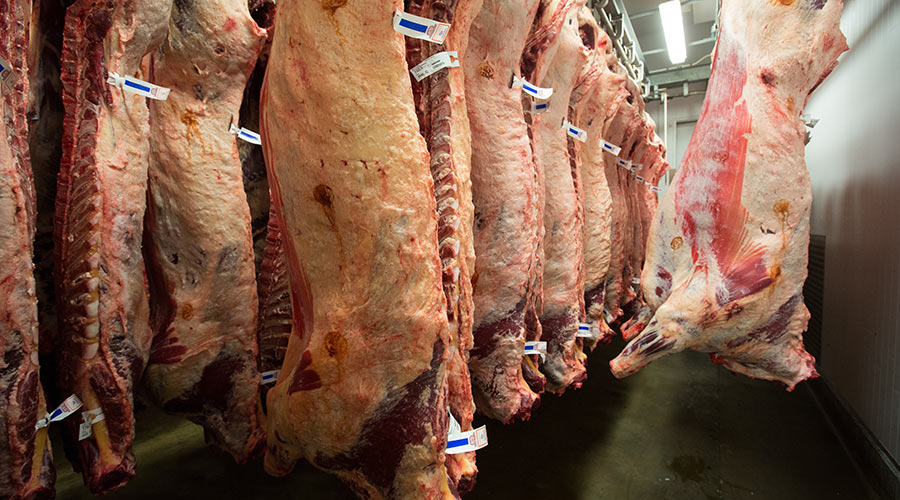US meat sector jeopardised by coronavirus
 © Tim Scrivener
© Tim Scrivener US farmers are being hit hard by huge abattoir and meat plant closures as a result of the coronavirus pandemic.
Dominated by a handful of very large processors, the US meat processing sector is facing challenges including high levels of confirmed cases in some plants and staff walkouts over working conditions.
The Smithfield Foods group has closed its Sioux Falls, South Dakota, factory after almost 300 workers there were confirmed as having contracted Covid-19.
The plant is supplied by 550 independent farming businesses, employs more than 3,000 workers and supplies 4-5% of US pork.
“The closure of this facility, combined with a growing list of other protein plants that have shuttered across our industry, is pushing our country perilously close to the edge in terms of our meat supply,” said Smithfield Foods’ president and chief executive Kenneth M. Sullivan.
See also: How dairy farmer is making more than £6/kg from Jersey bull calves
“These facility closures will also have severe, perhaps disastrous, repercussions for many in the supply chain; first and foremost our nation’s livestock farmers. These farmers have nowhere to send their animals.”
Smithfield has more than 40,000 employees and is one of the world’s largest vertically integrated animal protein processors.
Other processors affected include Brazilian-owned JBS, which has seen up to 50 workers infected at one Colorado facility employing thousands of people. JBS has closed this and another facility.
A further 160 cases were reported at a Cargill plant, and the surge in meat plant cases has included reports of worker deaths at meat plants owned by JBS and Tyson Foods.
UK plants also hit
Of the UK’s 250 or so abattoirs, about a dozen smaller plants have closed as a result of the pandemic, while another 30-40 have implemented part-time working, said Nick Allen, chief executive of the British Meat processors Association.
“Plants are generally operating on 10-15% reduced staffing, helped by the fact that people don’t want to take holiday at this point,” he said.
The US closures brought a reality to what could happen here if the virus took hold in a particular plant.
There have been protests over working conditions at both US and UK plants.
These have included Moy Park’s Portadown poultry processing site in Northern Ireland, where 100 workers walked out recently over the company’s alleged failure to ensure measures to combat the spread of coronavirus.
ABP saw about 80 staff walk out over health and safety concerns at its Lurgan plant.
A spokesman for ABP said: “The current Covid-19 pandemic is having a limited impact across our operations. It is an evolving situation and we will keep everything under review.
“We are very aware of our responsibility to keep our colleagues safe, and we have taken and continue to take guidance from all the relevant public health authorities with regard to processes and protocols across all of our processing sites.”
Additional protection measures for workers across the company included perspex partitions between work stations, additional PPE, increased and more frequent cleaning, extra space in canteens and reduced staff presence in one location through staggered work breaks and shift start and end times.
The company is also conducting temperature and wellbeing checks for employees.
Tulip said all of its sites remained open and operational and that the company was managing the effects of employees absences.
“In tackling the Covid-19 pandemic, we have worked to UK government, Public Health England and NHS guidance,” said a company statement.
Practical changes implemented on sites to raise Covid-19 awareness had addressed social distancing, and included supervised increased washing and sanitising of hands at key entrance points (entry and exit to site and all production areas) and re-organised work patterns.
Eamon O’Hearn Large, GMB union national officer for the manufacturing sector, said some very good work had been done in social distancing across all types of food workplaces, but there was a danger that this could be undermined by the practice of some employers not paying full sick pay from day one of an absence.
This, in turn, might encourage employees who should stay home to come into work for financial reasons and this risked jeopardising an already fragile consumer confidence.
Meat processors want the government’s furlough scheme to be more flexible so it can take on and lay off workers more frequently.
